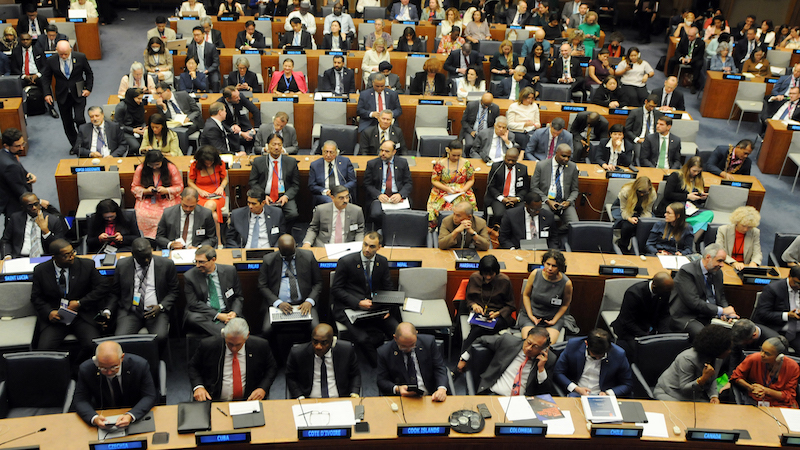While “ambitious” countries made few new announcements, the US, China, India and the UK had not offered enough to even sit in the room
As United Nations chief Antonio Guterres convened a climate summit for the first time in four years, he was keen to avoid platforming greenwash.
Instead of a long procession of leaders, the stage would be given only to those with “credible policies and plans” to keep the goals of the Paris Agreement alive.
On Wednesday, the absence of most of the world’s biggest polluters spoke volumes. Three-quarters of the G20 nations were left outside the door, with the United States, China, the United Kingdom and India pushed off the guestlist.
Among those that made the cut, there were a handful of slightly improved goals and climate finance promises – nothing groundbreaking.
“This wasn’t a dramatic pledging or deal-making summit”, says Tom Evans, an analyst at E3G. “But it put forward a group of leaders showing who is ahead and isolated those who are laggards. It was trying to show what is possible instead of diluting the level of ambition.”
Leaders from 34 governments along with seven non-government bodies, including the World Bank, the London mayor and the governor of California, addressed the summit. Brazil, Canada, France, Germany, the EU, and South Africa were the most high-profile speakers.
All-out on fossil fuels
Perhaps the most striking feature of the event was increasingly fiery rhetoric on fossil fuels.
California governor Gavin Newsom started by accusing the industry of “playing each and every one of us in this room for fools”. The state has recently filed a lawsuit against major oil companies.
My message to the UN:
This climate crisis is a fossil fuel crisis. It’s not complicated. pic.twitter.com/bHolZrtGyP
— Gavin Newsom (@GavinNewsom) September 21, 2023
Those words were echoed by Chile’s Gabriel Boric, who said “the climate crisis is a fossil fuel crisis so we need to leave fossil fuels behind”. His regional counterpart, Colombia’s Gustavo Petro came out against fossil fuels despite the country being a major global exporter of coal and oil.
“We depend on those exports, we live on those exports,” Petro said. “However, the real goal for all countries is aiming for zero production and supply of coal, oil and gas in the short term. If we don’t focus on that life will not be saved.”
Catherine Abreu, founder of Destination Zero, hailed the speeches as “game-changing” from the perspective of the global climate regime. “We saw once and for all the connection being made between climate change and fossil fuels”, she told Climate Home News. “As shocking as it is, that is revolutionary for the international space.”
Brazil boosts targets
Brazil brought the biggest news to the table when it announced widely trailed plans to undo former president Jair Bolsonaro’s cuts to its climate ambition and strengthen its targets further.
Lula scraps Bolsonaro’s cuts to Brazilian climate target ambition
“We will enhance Brazil’s emission reduction commitments from 37% to 48% by 2025, and from 50% to 53% by 2030,” said environment minister Marina Silva, who stepped in after President Lula reportedly fell ill. “This is despite the fact that our historical responsibilities are incomparably smaller than those of the rich countries.”
Among the major European countries, which made up the bulk of the attendees, only France came with fresh commitments. It announced it would give €1.61 billion ($1.75bn) to the Green Climate Fund’s four-yearly fundraising round. While this is slightly more in euros than France gave last time in 2019, the changing exchange rate means it is less in US dollar terms.
The EU’s president Ursula von Der Leyen repeated the bloc’s battle lines for Cop28, pushing for
Read More

